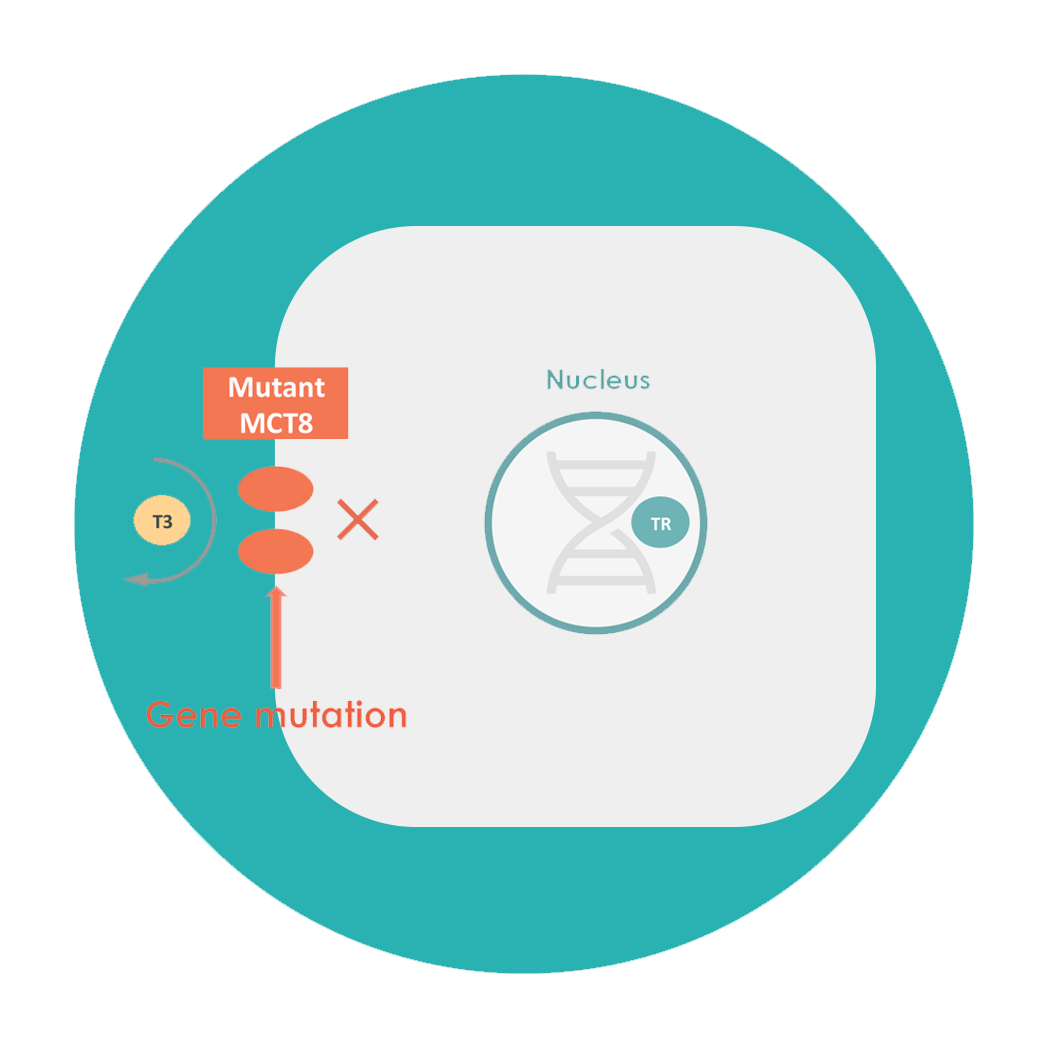
An Ultra Rare Genetic Disorder That Only Affects Boys
MCT8 deficiency, also known as Allan-Herndon-Dudley syndrome (AHDS), is a genetic X-linked disorder that only affects boys. AHDS is caused by the defective gene SLC16A2 on the X-chromosome resulting in a deficiency of the thyroid hormone (TH) transporter, MCT8 (monocarboxylate transporter 8).
Thyroid hormones are essential for proper brain development during pre-natal and early childhood stages as well as in the subsequent maintenance of brain function. MCT8 is the main transporter that brings thyroid hormones to the brain cells. If MCT8 is abnormal then thyroid hormone is not transported to where it is required. Lack of thyroid hormones in the brain during these periods is associated with delay in development of motor, neurological, psychological, and learning abilities. At birth, newborns with MCT8 deficiency may appear to be unaffected. However, early signs of MCT8 deficiency can be recognized at two to four months and include flabbiness (hypotonia) and poor head control. The latter persists and significant neurocognitive and physical development issues arise, including difficulty eating, walking, and keeping one’s head upright leading to limb rigidity (spasticity).
There are currently no approved drugs for the treatment of AHDS.

Significant Societal Impact of AHDS
AHDS is an ultra-rare disease. The prevalence of AHDS patients is 1 in 70,000 male individuals thus affecting 5,000 – 10,000 boys in the US, EU, and other countries with western standard healthcare.1,2 MCT8 deficient patients have serious neurocognitive and motor disability from early childhood and typically require constant, supportive care throughout their lives.
-
Experience from conditions with similar severity indicate significant annual resource utilization costs per patient (excluding treatment costs)3
-
Median life-expectancy of MCT8 deficient patients is just 35 years 4
- Patients underweight for age or without ability to hold head have an increased risk of aspiration pneumonia, frequent hospitalizations, and premature death
(1) Lower End of Range: Assumes US male population of ~162 million (US Census Bureau) and select EU/Europe markets male population of ~192 million (Eurostat; UK Office for National Statistics); EU/Europe markets include: UK, Germany, France, Spain, Italy, Belgium, Switzerland, and the Nordic countries. (2) Higher End of Range: Assumes addition of: Other EU/Europe countries, Canada, Japan, Australia/New Zealand, Russia, and South Korea. (3) Droege M, Sproule D, et al. Economic burden of spinal muscular atrophy in the United States: a contemporary assessment. J Med Econ. 2020 Jan;23(1):70-79. (4) Groeneweg, S, van Geest, F, et al. Disease characteristics of MCT8 deficiency: an international, retrospective, multicentre cohort study. The Lancet Diabetes & Endocrinology. 2020 Jul;1(8):594-605.



